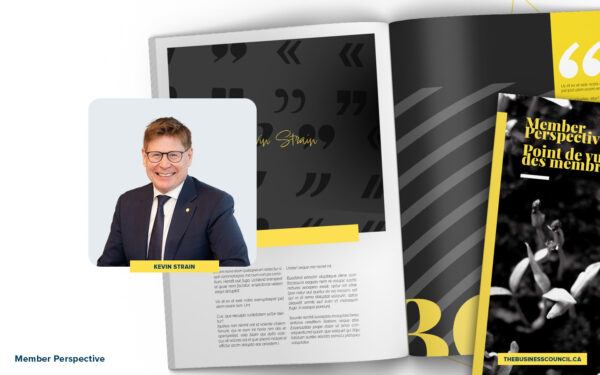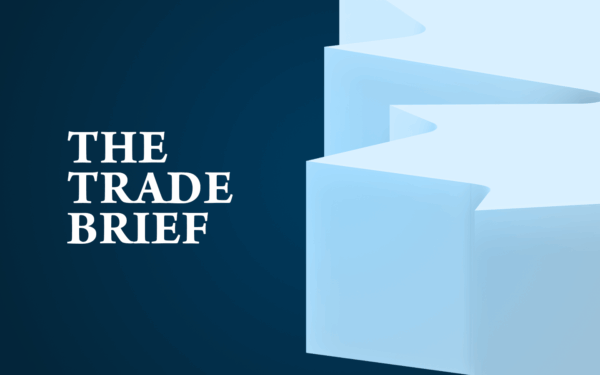Chrystia Freeland must deliver on doctrine
As published in the Financial Post
When Chrystia Freeland speaks, Canadian business leaders pay attention. When she speaks in Washington, they listen even more carefully. That’s because our deputy prime minister recently made the U.S. capital her venue of choice to tell us what she really thinks about the global economy.
At its core, Freeland’s doctrine prescribes that liberal democracies must trade and invest more with each other — what U.S. Treasury Secretary Janet Yellen defines as friend-shoring — to defend against economic coercion by authoritarian dictatorships. It is, in short, about relying on resilient allies.
Freeland’s two Washington speeches, both delivered on the margins of IMF/World Bank meetings, were complementary. Her Easter PIIE speech built on the foundation of her Thanksgiving Brookings remarks by clarifying how and why the United States must partner with Canada on energy security.
As Meredith Lilly of the Norman Paterson School of International Affairs tweeted, it was “the most cogent explanation of Canada’s shift to fully support the U.S. Inflation Reduction Act, making the U.S. approach central to Canada’s own Industrial-Trade-NatSecurity policy moving forward.”
The PIIE speech started with an attention-grabbing statement of fact that many would like Freeland and her colleagues to repeat proudly here at home: “Canada today is the largest exporter of oil to the United States, supplying at least twice as much as Saudi Arabia and Mexico combined.”
Freeland wasn’t finished. During the fireside chat portion of the event, she added, “We are really, really excited about mining — that’s not a sentence you hear uttered that often in Washington.” Truthfully, it’s not a sentence that you hear uttered that often in Ottawa by the Trudeau government.
“We’ve kind of taken our eye off the ball a little bit when it came to mining in critical materials,” Freeland continued. She noted, rightly, “The clean economy needs to be built out of stuff, too. And, at the end of the day, that stuff comes out of the Earth, it needs to be mined, it needs to be processed.”
The reason Freeland delivered these twin messages to an American audience was made clear as she argued energy security is central to national security and, as such, the United States can’t have strategic vulnerabilities to authoritarian regimes that control vast reserves of oil and minerals.
Instead, she urged the U.S. to lead by example on friend-shoring by securing more of them from Canada. Here, Freeland characterized the U.S. Inflation Reduction Act as not only good for the U.S. but also good for Canada and for the world. (She noted some Europeans might bristle at this.)
Freeland also argued private capital was essential to energy security and called on business to leverage Inflation Reduction Act incentives as well as those in the Liberals’ 2023 budget to invest more, take risks on new technology, and do big things they otherwise might not do — not just things they were planning to do anyway.
Whether businesses will do so or not will depend, in part, on the commitment made in the budget to “outline a concrete plan to improve the efficiency of the impact assessment and permitting processes for major projects which will include clarifying and reducing timelines” by the end of 2023.
Without streamlined processes to secure government approvals and permitting for the very types of investments Freeland is advocating, it would be negligent for a CEO to propose a major project to their board or shareholders. Without certainty and clarity, delays and disruptions are prohibitive.
That said, however, Canada’s business leaders strongly support Freeland’s goal of increased economic integration with the United States, especially in relation to energy security, strategic technologies, trade-enabling cross-border infrastructure, and more resilient supply and value chains.
That is why business leaders also support the creation of the one-year Canada-U.S. joint Energy Transformation Task Force announced during President Joe Biden’s recent visit to Ottawa, which Freeland was tapped to co-chair with Biden’s Special Presidential Co-ordinator for Global Infrastructure and Investment, Amos Hochstein.
With a mandate to accelerate co-operation on critical minerals, grid integration and resilience, nuclear energy, and other key areas to advance and enhance our collective energy security, the task force gives Freeland the means to deliver on her Washington speeches — moving from doctrine to doing.
We’ll know if she’s succeeded by year end.











